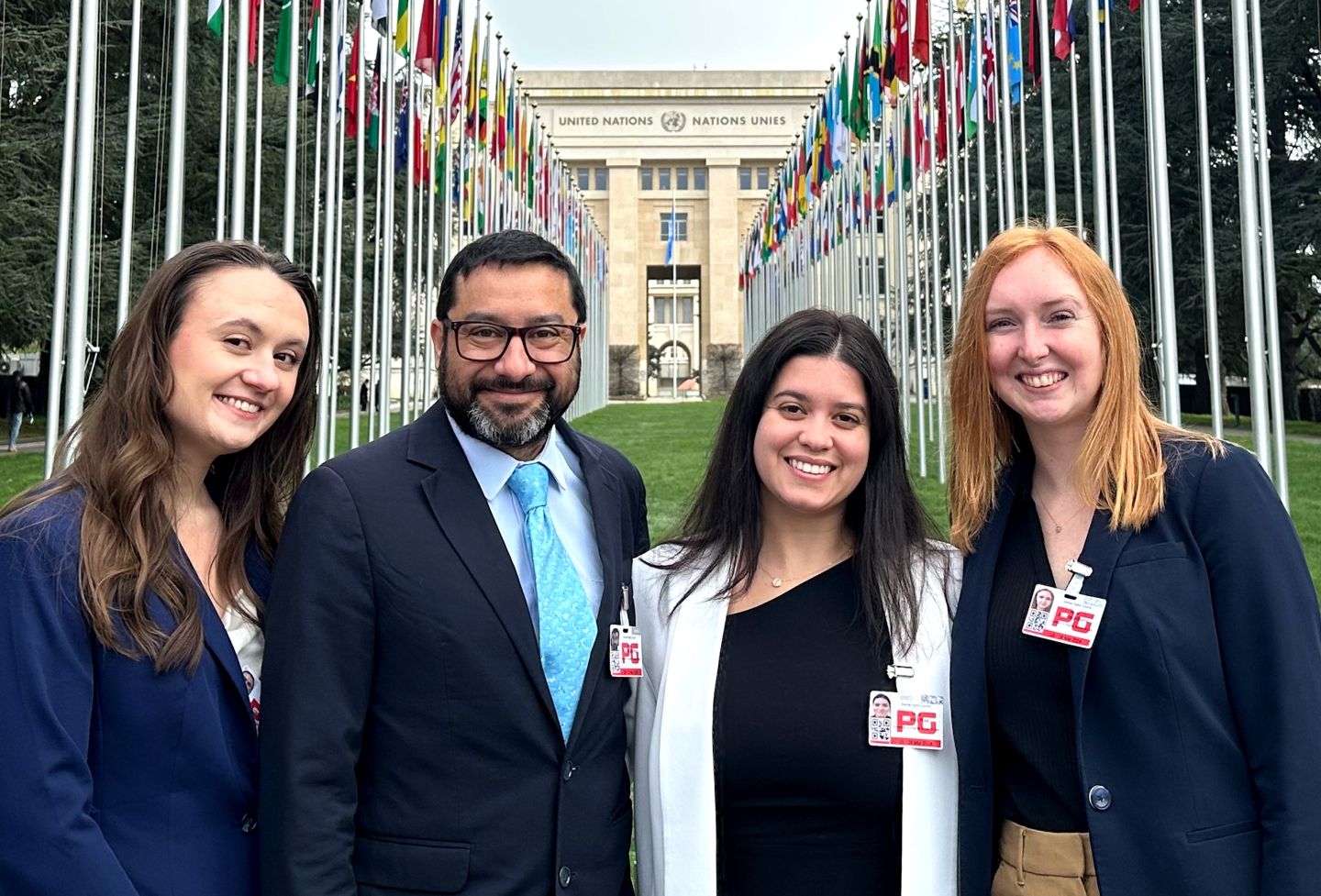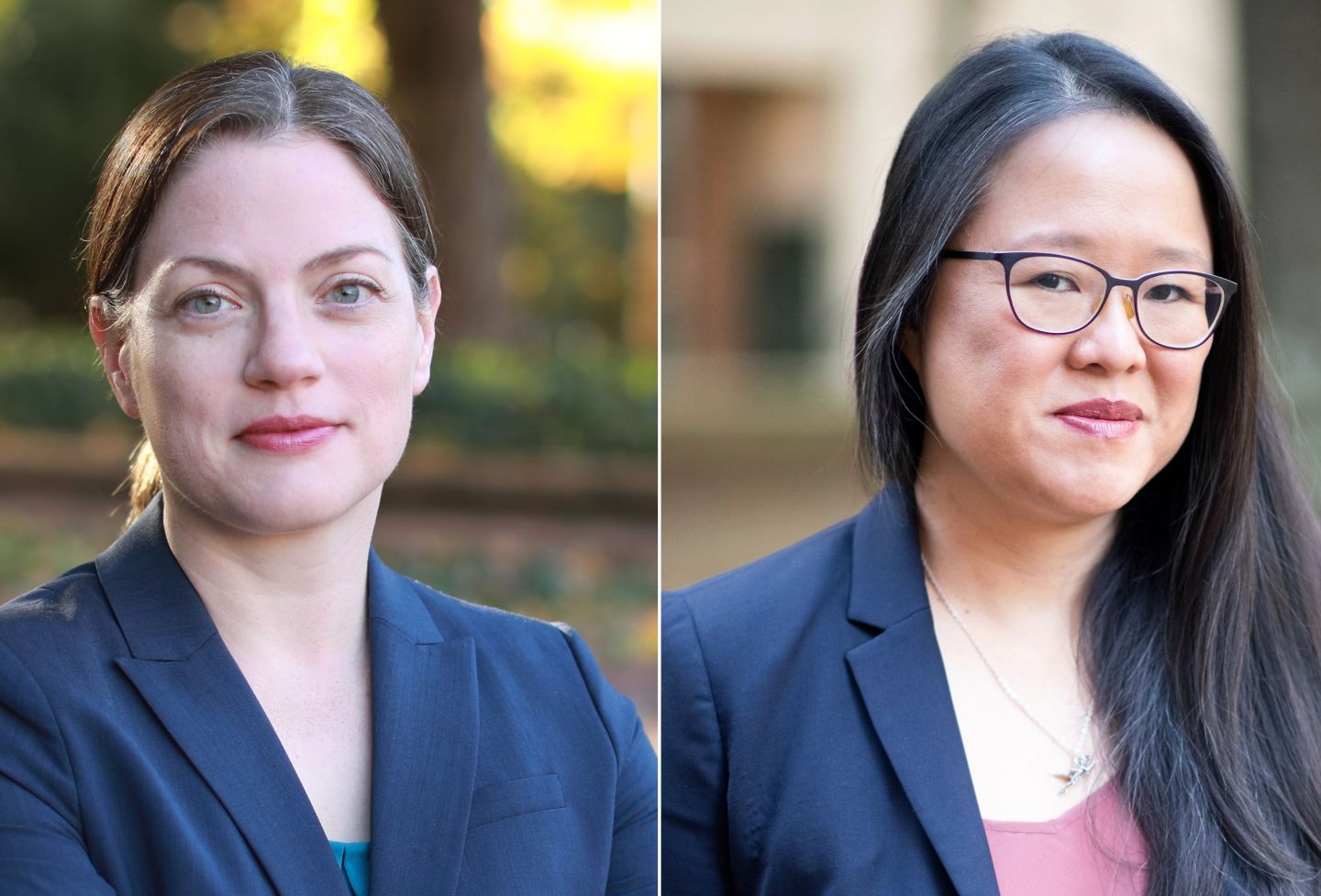JAG Commandant Says Terror Detainees Will Get Vigorous Defense

Once the trials of terror detainees held in Guantanamo Bay are underway, Americans will be proud of the procedures set up to ensure that justice is done, Judge Advocate General School Commandant General Scott Black told a full house at the Miller Center's Newman Pavilion July 19.
Meanwhile, Americans may be rightfully confused about where the authority for the military commissions to try enemy combatants derives, he said. Military courts-martial are established under Article I of the U.S. Constitution, meaning their powers derive from the authority of Congress, not the judiciary, which is described under Article III. But the military commissions are set up under the president's executive authority, outlined in Article II, and so the public is not seeing the usual institutions it expects in the administration of justice.
Nonetheless, the policies and procedures of the commissions are true to American standards of justice, Black said. President Bush instructed the commissions to conduct "full and fair" proceedings. The Department of Defense then issued the following formal criteria for fairness: presumption of innocence, proof beyond a reasonable doubt, free military counsel provided, private counsel allowed at the defendant's expense, the defendant can present evidence and faces no penalty for declining to testify, and, finally, the defendant is entitled to an appeal.
Black said the criteria were compared with standards in other major industrial democracies and with the U.N. covenant on justice procedures, which the United States ratified in 1992, and they were found to be "substantially the same."
Detainees' defense counsels, provided from the JAG ranks, are expected to conduct "vigorous, zealous, and effective representation," Black said. The officers chosen average 11 years of litigation experience and come from each service. Most have handled dozens of court-martials, very often vindicating their client. To convey how seriously defense counsels take their responsibilities, Black mentioned that one officer is going to Yemen to interview the detainee's family and another is preparing a legal challenge to the President's authority to create the commissions. Defense counsels are "focused on achieving their clients' objectives"-which is freedom, Black said.
The president's authority to set up commissions seems to be confirmed by a 1942 Supreme Court ruling that approved of President Franklin D. Roosevelt's military commission trial of eight German saboteurs captured on the New Jersey shore, Black said. American civilian rights do not apply to military commissions, the court declared. From 1944-49, "thousands of enemy soldiers" were tried by commissions set up in Germany, Japan, and the Philippines, Black noted, but we are unfamiliar with their structure and are having to relearn how to manage them.
Black said trials will not begin for at least six to 12 months as defense counsels pursue petitions challenging the status and condition of detainees in U.S. courts. The Supreme Court's ruling last month in the cases of Yaser Hamdi and Jose Padilla, terrorist suspects who are American citizens but labeled enemy combatants, "sends a tremendous signal to defense counsel that U.S. courts are open to their use," Black said. Detainees are likely to be charged with conspiracy to attack civilians and other war crimes, he said, predicting that defense counsels will probably want six to 12 months to prepare their cases.
A defendant charged under the Uniform Code of Military Justice actually has more rights than defendants in federal courts because they get free legal representation and can appear at grand jury hearings and present and challenge evidence, Black said. In nonmilitary courts the accused is not present for grand jury proceedings.
The military is sensitive to international interest in how the cases are handled. "It's not about being a measure of [the detainees], but a measure of us," said Black. "I believe when the commissions are underway and we have the first decisions, we, you and I, will be able to take pride in the process and these commissions will be full and fair."
Founded in 1819, the University of Virginia School of Law is the second-oldest continuously operating law school in the nation. Consistently ranked among the top law schools, Virginia is a world-renowned training ground for distinguished lawyers and public servants, instilling in them a commitment to leadership, integrity and community service.


